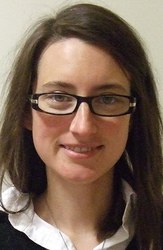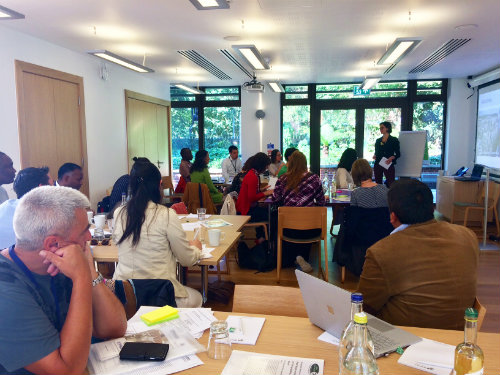
Dr Ciara Dangerfield, Postdoctoral Research Associate in Cambridge’s Department of Plant Sciences, reports.
 Early career researchers met in September 2018 at Westminster College, Cambridge to discuss the problems of food waste across the supply chain and what we in the research community can do to fix them. Several problems were identified including the imbalance of power, lack of public awareness and lack of empirical information. Researchers concluded a need for structural changes to the food system to address the issues of food waste.
Early career researchers met in September 2018 at Westminster College, Cambridge to discuss the problems of food waste across the supply chain and what we in the research community can do to fix them. Several problems were identified including the imbalance of power, lack of public awareness and lack of empirical information. Researchers concluded a need for structural changes to the food system to address the issues of food waste.
The workshop was funded by the Global Food Security Program and was aimed at early career researchers. Researchers from a range of different disciplines including plant sciences, law and engineering attended, providing a variety of perspectives to the problems of food waste. There were also representatives from industry, BBSRC, Cambridge Global Food Security Interdisciplinary Research Centre and University of Cambridge Environment and Energy sector.
The day began with a series of talks from four distinguished speakers – two from academia (Dr Mukesh Kumar from University of Cambridge and Dr Manoj Dora from Brunel University), and two from NGOs (Dr Bojana Bojzelj from WRAP and Dr Karen Luyckx from Feedback). Dr Kumar and Dr Dora discussed the issues of food waste at both the pre-factory and factory stages of the supply chain. Issues such as land selection, variety of cultivars, seed, nutrition, crop establishment, water, disease, defoliation, harvest storage and delivery from farm to factory all contribute to food waste.

Retailers also play a major role in the problem of food wastage and Dr Luyckx described several initiatives that Feedback are undertaking to challenge and change the distribution of power within the food supply chain. The point was also raised that some food wastage is unavoidable, however it can still be put to good use. For example, Feedback are campaigning to allow surplus food to be used for pig feed, which they estimate could reduce the land required for EU pork production by 1.8 million hectares.
The morning talks ended with a systematic view of food waste. Dr Bojazelj from WRAP showed that the end consumer is still where the largest amount of food waste occurs. She also highlighted the lack of data on food waste within primary production and so this is a key knowledge gap.
From the day’s discussions we identified the following three key issues: lack of public understanding on the issues of food waste, the power of the supermarkets and the lack of data and formal definitions of food waste. In achieving such changes, we identified legislation, changing public behaviour and smart technologies as key to achieving structural change in the food supply chain. It was clear the research community are going to be key in trying to use each of these areas to address the problems of food waste but that knowledge transfer would be key to ensuring research breakthroughs reach relevant stakeholders.
The workshop provided the early career researchers who attended with the opportunity to establish with new contacts and potential future collaborators. Food security poses big challenges, and only through connecting with other researchers across the disciplines do the next generation of researchers stand a chance of solving them.

